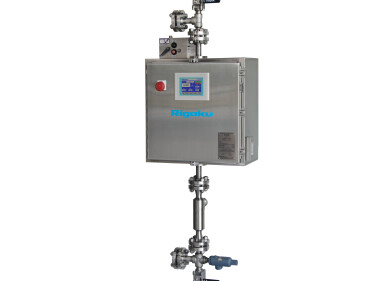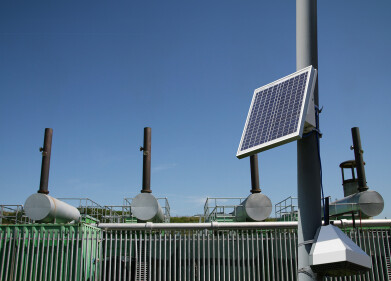Measurement and Testing
Why is Hydrogen a Renewable Fuel?
Apr 21 2022
Hydrogen accounts for roughly 73% of all matter, making it not only the most abundant element on Earth but in the entire universe. With so much of the element readily available, hydrogen has enormous potential as a renewable fuel. However, it’s not quite as simple as it sounds. To qualify as “renewable” hydrogen must meet two important criteria:
Fossil-fuel free hydrogen
Currently, around 95% world’s hydrogen is produced using a process called steam methane reforming. As the name suggests, the process is reliant on methane, which is sourced from natural gas. Steam methane reforming releases a significant amount of carbon dioxide into the atmosphere and is a major contributor to greenhouse gas emissions and climate change. This carbon footprint counteracts the eco-friendly benefits of hydrogen as a renewable fuel source and has led to the exploration of other production methods.
Over the past decade, electrolysis has emerged as an efficient and environmentally responsible way to produce hydrogen. An electrolyser is used to split H2O into hydrogen and oxygen, with zero carbon emissions. While there are no harmful by-products, electrolysis is an energy-intensive process. How this energy is sourced will ultimately determine whether the hydrogen is renewable.
Renewable electrolysis
Electrolysis has the potential to produce renewable hydrogen, but only if the energy used to power the process is also renewable. While technically hydrogen doesn’t release any greenhouse gases or other by-products into the atmosphere, the environmental benefits are counteracted when the fuel is produced at an electrolysis plant powered by coal-generated electricity. In comparison, hydrogen produced at an electrolysis plant powered by solar-generated electricity is renewable. Only when hydrogen is produced with zero CO2 emissions, including during the upstream and downstream processes, does it qualify as 100% renewable.
UK spearheads renewable hydrogen
The UK is a pioneer of renewable hydrogen, with the Department for Business, Energy & Industrial Strategy recently announcing plans to direct £240 million into the Net Zero Hydrogen Fund. Business and Energy Secretary Kwasi Kwarteng says “this investment will unlock the enormous potential of hydrogen” and not only combat climate change but reduce the country’s dependence on foreign imports."
“High gas prices and Russia’s aggression in Ukraine have highlighted the urgent need to produce more of our energy here in the UK,” says Kwarteng. “That’s why we have set out bold plans to harness clean, cutting-edge, homegrown technologies and build the energy security we need for the future.”
Green hydrogen has enormous potential, with many energy analysts hailing it as the fuel of the future. Find out more about the advent of green hydrogen and how governments around the world are championing the eco-friendly energy source in ‘Everything You Need to Know About Hydrogen Fuel’.
Digital Edition
PIN 25.5 Oct/Nov 2024
November 2024
Analytical Instrumentation - Picturing Viscosity – How Can a Viscometer or a Rheometer Benefit You? - Sustainable Grease Formulations: Evaluating Key Performance Parameters and Testing Method...
View all digital editions
Events
Nov 26 2024 Paris, France
Nov 26 2024 Amsterdam, Netherlands
Nov 27 2024 Istanbul, Turkey
Biogas Convention & Trade Fair 2024
Nov 27 2024 Hanover, Germany
Dec 03 2024 Dusseldorf, Germany



















